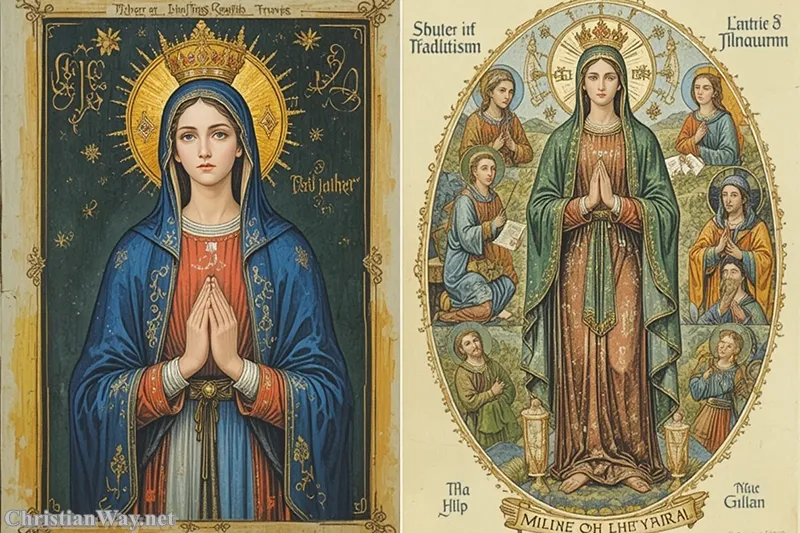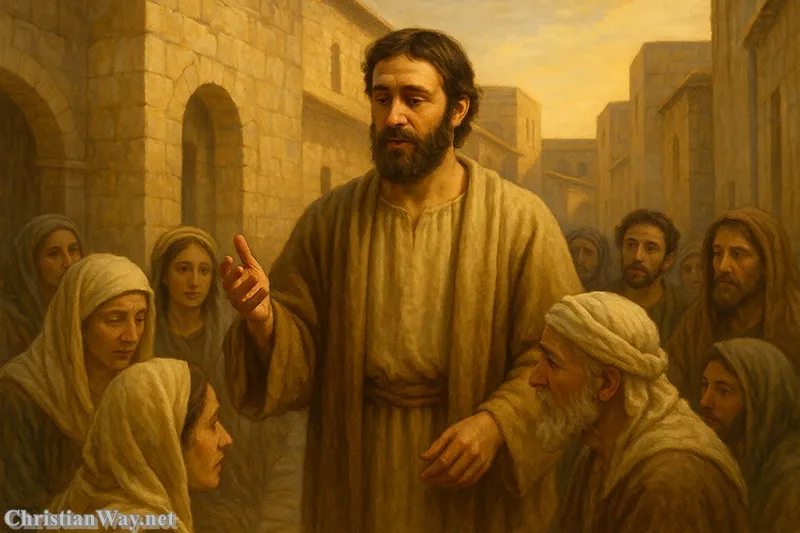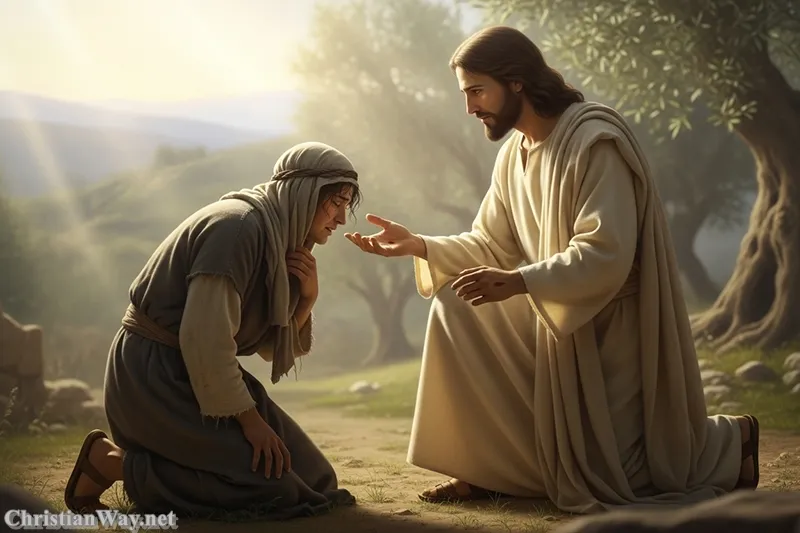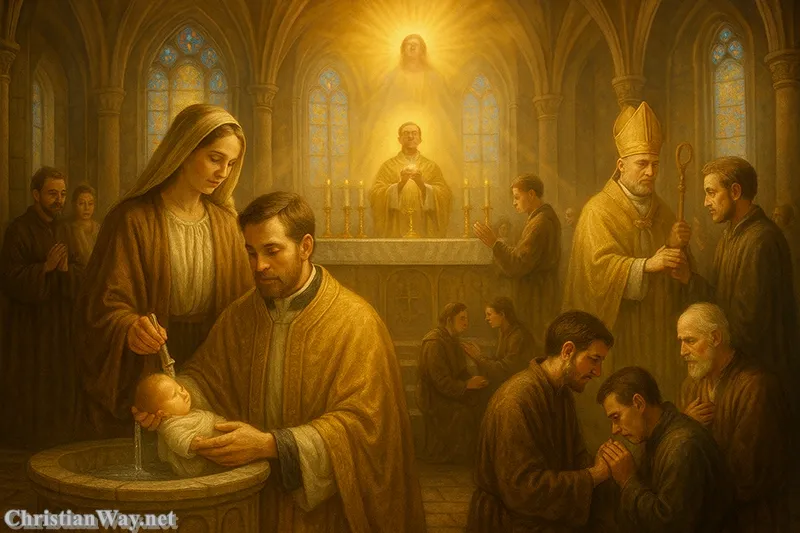Every human heart, at some moment of quiet longing, seeks an answer to the question that echoes through the centuries: Who is the Messiah? For the people of Israel, this question was not abstract but deeply personal—a yearning for redemption, justice, and peace. They awaited the One promised through prophets and psalms, the Anointed One who would restore God’s kingdom on earth.
Dear friends in Christ, to speak of Jesus the Messiah is to speak of the center of God’s saving plan. It is to recognize that in Him, every prophecy finds its “Yes,” every hope its fulfillment, and every human sorrow its healing. The word Messiah—from the Hebrew Mashiach, meaning “Anointed One”—points to Jesus not merely as a teacher or miracle worker, but as the very embodiment of divine mission. He is the Christ, the One chosen, consecrated, and sent to reconcile humanity to God.
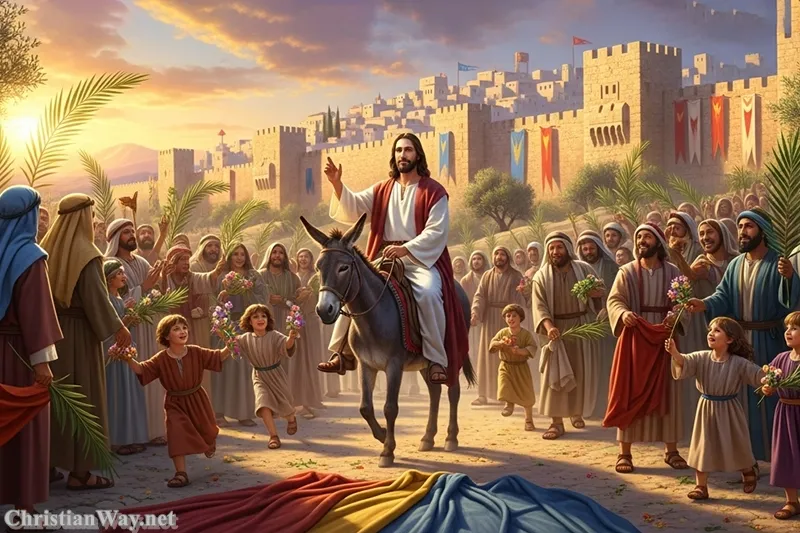
In this reflection, let us walk together through Scripture and the heart’s experience to understand what it means to call Jesus the Messiah—not as a title alone, but as a living reality that transforms every believer.
The Promise of the Messiah: Hope Rooted in God’s Covenant
From the dawn of salvation history, God planted in the hearts of His people a longing for deliverance. The story of Israel is the story of a promise unfolding—a divine commitment that, though often tested, was never broken.
God’s Faithfulness Through the Ages
In the Garden of Eden, after humanity’s first fall, God spoke the first prophecy of redemption: “I will put enmity between you and the woman, and between your offspring and hers; he will crush your head, and you will strike his heel” (Genesis 3:15). This early word of hope—the Protoevangelium—was the first whisper of the coming Messiah.
Through Abraham, God established a covenant that His descendants would become a blessing to all nations (Genesis 12:3). Through Moses, He revealed the Law that would prepare hearts for grace. Through David, He promised an eternal kingdom: “Your throne shall be established forever” (2 Samuel 7:16).
Each of these moments pointed forward to the One who would bring the promise to completion—the Messiah who would embody God’s faithfulness in flesh and blood.
The Prophets’ Vision of the Coming Savior
The prophets of Israel spoke with passion and vision of this coming Redeemer. Isaiah foretold a servant who would bear humanity’s sins: “He was pierced for our transgressions, crushed for our iniquities” (Isaiah 53:5). Micah spoke of His humble birth in Bethlehem (Micah 5:2), while Zechariah envisioned a king who would come not in conquest, but in peace: “Your king comes to you, righteous and victorious, humble and riding on a donkey” (Zechariah 9:9).
To the weary exiles, these prophecies were more than promises—they were lifelines. And when the fullness of time came, as St. Paul writes, “God sent His Son, born of a woman, born under the law, to redeem those under the law” (Galatians 4:4–5).
Jesus the Messiah: The Anointed One Revealed
When Jesus of Nazareth walked the dusty roads of Galilee, many recognized in Him something divine, something that transcended expectation. Yet few could imagine the depth of His identity as the Messiah.
The Anointing of the Spirit
At His baptism in the Jordan, the heavens opened and the Holy Spirit descended upon Him like a dove, while the Father’s voice declared, “This is My beloved Son, with whom I am well pleased” (Matthew 3:17). In that sacred moment, the hidden mystery of the Messiah was unveiled. Jesus was anointed—not with oil as kings of old—but with the Spirit of God Himself.
This divine anointing marked the beginning of His public ministry. As He stood in the synagogue of Nazareth, He read from Isaiah: “The Spirit of the Lord is upon Me, because He has anointed Me to proclaim good news to the poor” (Luke 4:18). Then, in words that resounded through eternity, He declared, “Today this scripture is fulfilled in your hearing.”
The Mission of the Messiah
The mission of Jesus the Messiah was not to establish an earthly throne, but to bring the kingdom of heaven near—to heal, forgive, and set free. His miracles were not mere displays of power but signs of God’s mercy breaking into the world.
He opened the eyes of the blind, not only to restore sight, but to reveal spiritual vision. He fed the hungry, not only with bread, but with the Bread of Life. He called sinners, not to shame them, but to bring them home to the Father.
Every act of Jesus revealed the nature of His Messiahship: He is the Shepherd who seeks the lost, the Physician who heals the broken, the Lamb who takes away the sins of the world.
The Cross: The Paradox of the Messiah’s Triumph
The Suffering Servant
When Jesus entered Jerusalem on Palm Sunday, hailed as “the Son of David,” the people expected the triumphant Messiah of their dreams. But within days, their shouts of praise turned into cries of crucifixion. The Messiah they received was not the conqueror they imagined, but the suffering servant foretold by Isaiah.
At Calvary, the true meaning of Messiahship was revealed—not in worldly power, but in sacrificial love. “The Son of Man did not come to be served, but to serve, and to give His life as a ransom for many” (Mark 10:45).
In the darkness of the Cross, Jesus the Messiah became the bridge between heaven and earth. His outstretched arms gathered humanity’s pain, sin, and sorrow, offering them to the Father in perfect obedience.
Redemption Through Sacrifice
The Cross, once a symbol of shame, became the throne of the true King. There, the Messiah accomplished the greatest victory—not by defeating armies, but by conquering death itself. As St. Peter proclaimed on Pentecost, “God has made this Jesus, whom you crucified, both Lord and Messiah” (Acts 2:36).
In His resurrection, the promise of eternal life burst forth. The Messiah who suffered now reigns forever, alive and present in His Church and in the hearts of the faithful.
The Messiah’s Kingdom: Here and Yet to Come
The Reign of Grace
Jesus declared, “The kingdom of God is within you” (Luke 17:21). His kingdom is not built of stone but of transformed hearts. It is a reign of mercy where the poor are lifted up, the meek inherit the earth, and those who hunger for righteousness are filled.
The Messiah continues His reign through the Holy Spirit, guiding the Church, nourishing souls through the Sacraments, and calling each of us to participate in His mission. Every act of love, forgiveness, and faith is a sign that His kingdom is alive among us.
The Promise of the Second Coming
Yet we also await the day when the Messiah will return in glory. The Book of Revelation reminds us that “The kingdoms of this world have become the kingdom of our Lord and of His Christ, and He shall reign forever and ever” (Revelation 11:15).
Until that day, we live in hope, working and praying for the fullness of His kingdom. We are invited to bear witness to the Messiah—not only in words but in lives that reflect His love.
Living as Disciples of the Messiah
To Know the Messiah Personally
To call Jesus “the Messiah” is not only to recognize His divine identity but to surrender our hearts to His lordship. Faith in Him is not an abstract belief—it is a relationship, a daily encounter with the living Christ.
When Peter confessed, “You are the Messiah, the Son of the living God” (Matthew 16:16), Jesus responded, “Blessed are you, Simon son of Jonah.” That same blessing is offered to every believer who opens their heart in faith.
To Follow the Messiah’s Way
The way of the Messiah is the way of humility, service, and love. It means embracing the Cross in our own lives—trusting that in surrender we find true victory. It means allowing the Spirit to anoint us, so that we, too, might bring good news to the poor and light to those in darkness.
As St. Paul writes, “If anyone is in Christ, he is a new creation” (2 Corinthians 5:17). The Messiah’s work continues in us, making our lives a living testimony of His redeeming grace.
Reflect and Pray
Dear friends, the title “Jesus the Messiah” is not a mere theological claim—it is the heartbeat of Christian faith. He is the One for whom every soul was made, the fulfillment of every longing, the promise that never fails.
When we say, “Jesus is the Messiah,” we proclaim that love is stronger than sin, that mercy triumphs over judgment, and that death has been defeated by the power of divine compassion.
Let us, then, live as children of the Messiah’s kingdom—bearing peace where there is conflict, hope where there is despair, and light where there is shadow.
May we echo the words of Peter and the saints with every breath:
“You are the Messiah, the Son of the living God.”
Lord Jesus the Messiah, anointed by the Spirit and exalted by the Father, reign in our hearts today. May Your kingdom of love grow within us, until all creation is renewed in Your glory. Amen.
— Fr. John Matthew, for Christian Way
